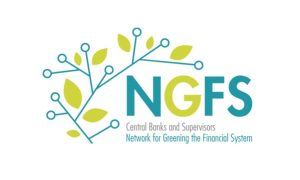Draft Voluntary Carbon Credit Guidelines
The Singapore National Climate Change Secretariat releases draft of voluntary carbon credit guidelines, aimed at providing guidance for companies to voluntarily apply carbon credits in decarbonization plans.
The International Monetary Fund believes that businesses play a crucial role in global decarbonization, and the world needs to invest $2 trillion annually in net zero emissions, with 80% of the funding coming from businesses.
Related Post: CFA Institute Releases Voluntary Carbon Market Report
Voluntary Carbon Market and Carbon Credit
Carbon credit represents a certificate of one ton of greenhouse gas removal or emission reduction, which can be divided into Removal Credits and Reduction Credits. The carbon market can promote carbon credit trading and guide funds towards cost-effective carbon credit projects. The World Bank believes that carbon markets can reduce the cost of greenhouse gas emissions by 32%. Enterprises can purchase carbon credits in the compliant carbon market to fulfill their emission reduction obligations, or they can purchase carbon credits in the voluntary carbon market to reduce emissions.
The Singapore International Carbon Credit framework has established seven principles to assess the environmental integrity of carbon credits to comply with Article 6 of the Paris Agreement. These principles are also the standards that high-quality carbon credits need to meet:
- Not double-counted: Carbon credits cannot be counted repeatedly, for example, they cannot be claimed multiple times by enterprises (Double Claiming), nor can they be issued repeatedly by multiple carbon credit projects (Double Exemption).
- Additional: Carbon credits must exceed the emission reductions and removals required by the jurisdiction.
- Real: Carbon credits need to quantify carbon emissions in a realistic, reasonable, and conservative manner.
- Quantified and Verified: Carbon credit calculations need to be based on transparent methods and verified by third-party certification bodies.
- Permanent: The effect of carbon credit is irreversible, otherwise measures need to be taken to monitor, mitigate, and compensate for possible reversals.
- Do Not Net Harm: Carbon credits cannot violate laws, regulatory requirements, or international obligations.
- No Leakage: Carbon credits cannot lead to a significant increase in carbon emissions in other regions.
In addition to the above principles, companies can also refer to the Core Carbon Principles published by the Integrity Council for Voluntary Carbon Market (ICVCM) or the Eligibility Emissions Unit Eligibility Criteria published by the Carbon Offsetting and Reduction Scheme for International Aviation (CORSIA). Enterprises should also conduct due diligence on carbon credit projects to ensure that the carbon credit they purchase are of high quality.
How to Use Voluntary Carbon Credits
Enterprises can use carbon credits as part of their decarbonization plan, prioritizing all feasible emission reduction measures before using them to address the remaining emissions. Due to the emergence of new carbon reduction solutions and technologies, companies need to regularly review their decarbonization plans and measure the remaining carbon emissions. Enterprises also need to consider the uncertainty, commercial risks, and external risk factors of carbon credit projects, and can refer to carbon credit labels and ratings for objective evaluation.
When enterprises use voluntary carbon credits, they need to disclose the carbon credit quota, type, project information, purpose, and third-party rating. This evil information can enhance corporate reputation and inform stakeholders such as consumers and investors about decarbonization progress. Singapore is implementing phased and proportional climate disclosure requirements, which are consistent with the International Sustainable Development Standards Board (ISSB Standards) standards. Based on climate disclosure requirements, companies need to disclose their decarbonization goals and strategies, as well as the use of carbon credits (carbon credit types, certifications, and other information that users need to know).
Reference





